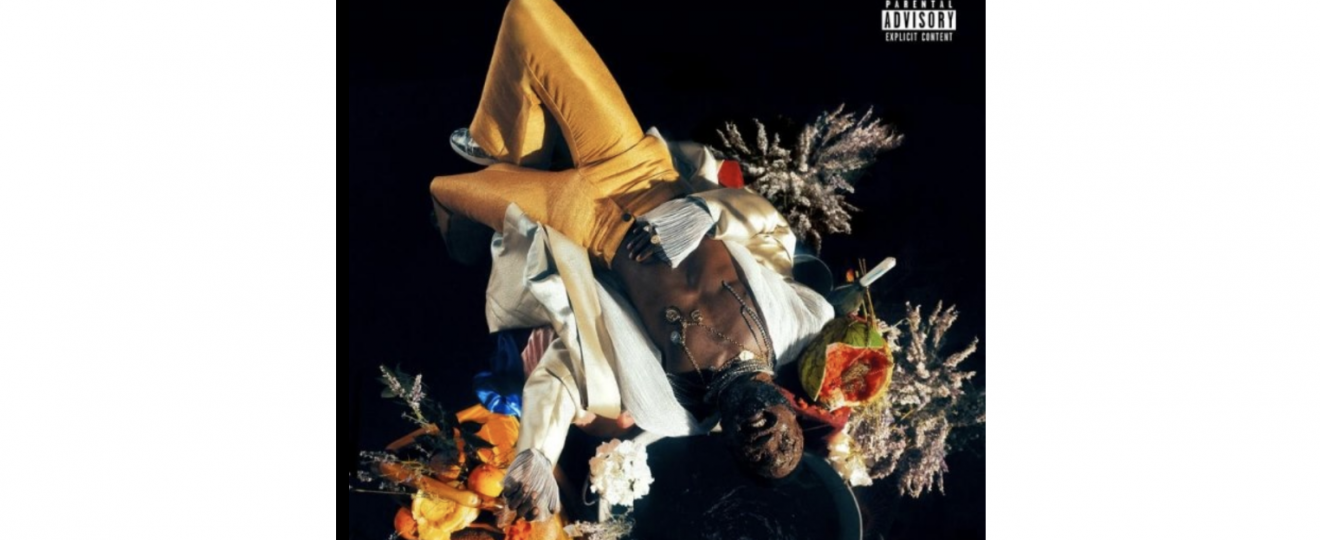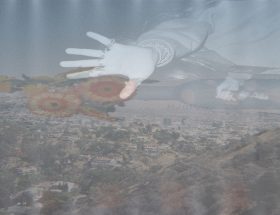The modern-day Renaissance man, Kojey Radical, released ’the realest shit [he] ever wrote’ in September of this year. The eclectic album ranges from alternative RnB, to funk, to gospel, in which the king of introspection provides us with an explosion of emotion and a deeply personal documentation of growth.
Radical intentionally stylised the album art to be reminiscent of the Vanitas movement; a movement with core motifs that perfectly elucidate the focus of his new music: the notions of the futility of pleasure, the certainty of death and the acceptance of life. His commitment to transparency in his art allows for every song to ooze with passion and life; his rapid-fire flow giving the impression that he will never run out of beautiful bars to spit.
The album begins with Where Do I Begin (ha!), in which Radical confidently flexes the muscles of his musical abilities through both the content of his lyrics and his flow, coolly owning his title as a musical pioneer and influencer. His speech takes the form of hardened spoken word; and the contrast between these gruff vocals and his smooth falsetto in later songs demonstrates a key theme I took away from Radical’s art: that the multifaceted self is a host to many simultaneously conflicting emotions. This is followed by another confident affirmation of a song, 2020, in which (as in the first track) he calls out imposters in the industry, and assures himself (and his audience?) of his determination for his current and future upward trajectory. The album begins its journey back into the layers of Radical’s soul with I Can’t Go Back, a reflection on his struggle with depression, in which he passionately cries out that ‘[he] can’t go back to feeling like [he] wants to die’. Radical displays his scars and demonstrates his healing, this time expressing his personal rather than creative determination to remain on his road to greatness.
The album continues to soften with Sugar, a lusty track featuring vocals from the glorious Ghanian artist Amaarae; a song which allows for vulnerable moments which most rappers are reluctant to share, with Radical confessing: ‘I was hoping we could talk, I was hoping there was something realer than a momentary intercourse’. The album namesake Cashmere Tears follows, a smoothly tender song capturing Radical ‘in [his] feels’, in which Radical admits: ‘didn’t want to say I’m falling for you, didn’t want to make this any more real’. Upon announcing his album on Instagram, Radical wrote: ‘May every tear feel like cashmere on your skin and let your ego fall like silk’, and this smooth track elucidates his wish to make vulnerability stylish. On the next increasingly vulnerable track, Hours, one of the first lines genuinely elicited an audible and instinctive noise of praise from me: ‘I pulled love from a grain of dust and risked it on a night of lust’. The song is incredibly sweet and sensitive, his voice ascending into an almost shy-sounding falsetto as he admits, ‘you gon’ make me loose my mind, or make me loose my cool’. With Eleven, Radical delves back into himself. This song felt like a diary entry expressing a range of factors affecting his current mental state: the pain of losing his best friend, the model Harry Uzoka, his gratitude and trust of the flow of life, and his recognition of both the fragility of success and of life itself; as he professes that ‘every blessing meant for [him] was not a minute late’. Choral singers build the next song Down2this into an emotionally gripping crescendo, which bridges into the grisly and frustrated track Feel About It, in which Radical reflects on an exhausting relationship filled with miscommunication, dishonesty and longing.
The final song, Last Night, is when we reach Radical’s core. The album ends with Radical calling out into the sonic void:
‘The right thing might not always come out the right way, the right time might not always fall on the right day and that’s fine, that’s life, that’s life-like. Getting paid and paying bills, like, speaking your truth when it don’t feel right, like… loosing to win it. We all die, right? When do we finish? Where do we go? How is you feeling? How is you… so what do we do next?’
With the fragmented and spoken-word-like delivery of these lines, I was rendered speechless. I felt my soul was peeled open by Radical’s personal lamentations. Upon my first listening to the album, Radical’s expression of his own growing pains happened to coincide with the occurrence of my own growing pains. His introspection aided my own, and his vibrant expression of his own emotions helped me elucidate my own. He artistically displays his revelation of self-worth, his struggle to allow joy to take over; of losing people, and gaining clarity of yourself: a narrative I am sure a vast amount of his listeners directly related to.
My personal connection with this album allowed me to revisit my awe at the human experience of encountering the right piece of art at exactly the right time. I found myself mulling over the utterly mind-blowing concept that a human can create art stemming from their own soul and truth, which in turn can exactly articulate the consumer’s own inner turmoil, thus causing them to immediately engage with it.
Art shakes your spiritual awareness; it is a platform that candidly displays the workings of the human condition, in turn allowing us to connect as a species. When you peer into the window of the soul of an artist, you can transpose your emotions onto the medium that the artist provides you with. This engagement in turn causes you to connect with yourself further. When you connect with an artistic medium, regardless of whether this takes form of an album, a piece of literature, or a painting, you are endeavouring on a path of self-engagement. Kojey Radical confesses that he knows nothing but being honest in his art: and the honesty of such artists allows consumers to in turn think more critically about their own truth.




